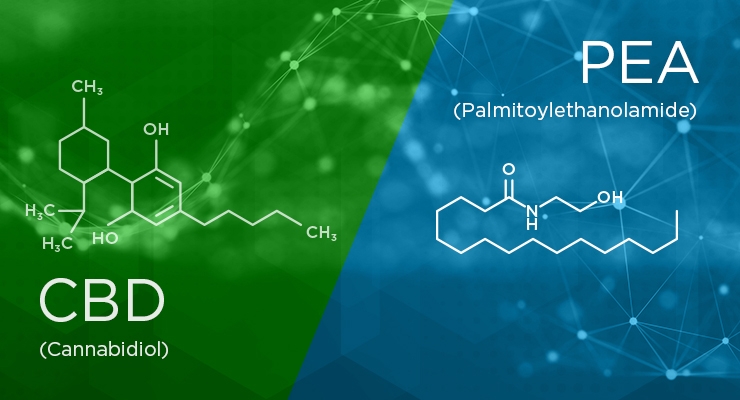Market Updates, Research
PEA as a CBD Alternative? Analysis Breaks Down the Overlap and Differences
While there is much to uncover in the realm of human outcomes, the paper makes an in-depth scientific comparison between the two endocannabinoids.

By: Mike Montemarano

The endocannabinoid Palmitoylethanolamide (PEA) was the subject of a recent analysis which found that it may serve as a suitable alternative to CBD for dietary supplement manufacturers. In addition to having a more robust portfolio of research establishing its safety, and compliance with current regulations, the overlap of benefits may be more preferable in certain dietary supplement interventions, the authors of the review appearing in the Journal of Dietary Supplements wrote.
The analysis was conducted by researchers at Gencor, the manufacturer of Levagen+, a water-dispersible PEA supplement with regulatory approvals by the Therapeutic Goods Administration (TGA) in Australia, Food Safety and Standards Authority of India (FSSAI), Natural Health Products Directorate (NDPD) in Canada, and the Brazilian Health Regulatory Agency (ANVISA).
The paper makes an in-depth comparison of the mechanisms of action, pharmacology, safety profile, and regulatory status of both CBD and PEA. Conclusions from the analysis show that while the therapeutic actions of CBD and PEA overlap in their biochemical roles, such as by acting upon the same receptors within the human endocannabinoid system, there is a need for further investigation in multiple areas.
Specifically, the analysis calls for investigations into definitive bioavailability, volume of distribution, safety, and efficacy when used in both diseased and healthy populations.
Some takeaways from the study include that much of the current CBD science is specific to disease states, predominantly epilepsy and neurological disorders, which raises questions about the safety of CBD as a modulator in lifestyle management of healthy populations. Meanwhile, the review highlights five decades’ worth of literature demonstrating safety and tolerability of PEA in humans and animals.
The review highlights challenges facing the CBD marketplace today, such as unapproved CBD products being sold across the globe, and challenges pertaining to lack of standardization, unapproved health claims, and high mislabeling rates.
“WE are excited to share these scientific insights into the safety, efficacies, and regulations of PEA and CBD,” Chase Shryoc, vice president of sales and business development for Gencor, said.
“Our goal isn’t to paint a negative picture of CBD, but to inform and guide manufacturers in making educated and informed choices when formulating products in the pain, recovery, immunity, or sleep segments,” Shryoc continued.


